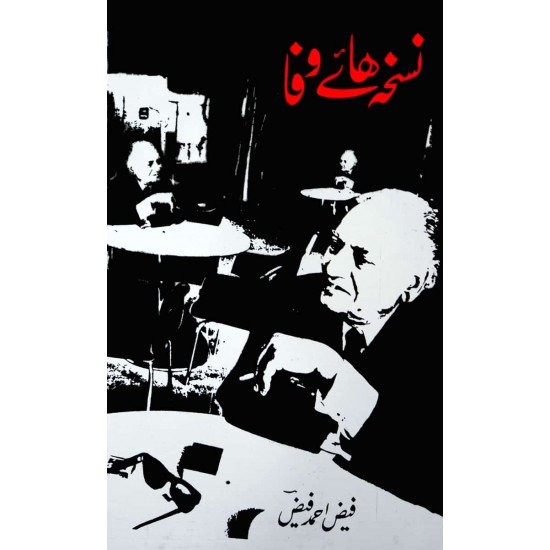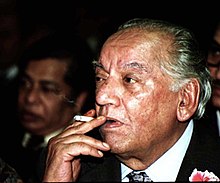Introduction
Faiz Ahmad Faiz, one of the preeminent Urdu poets of the 20th century, left an indelible mark on both the literary world and the socio-political landscape of South Asia. His life and works are a testament to the power of poetry in voicing social and political concerns, championing justice, and advocating for human rights. In this exploration of Faiz’s life and works, we delve into the remarkable journey of this poet-activist and examine the enduring relevance of his poetry.


Early Life and Education
Faiz Ahmad Faiz was born on February 13, 1911, in Sialkot, a city now in Pakistan. His family had a long history of literary and intellectual pursuits, and this environment played a crucial role in shaping his early interests. Faiz received his initial education in Sialkot and later attended the prestigious Murray College. It was during this time that he began composing poetry, influenced by the progressive literary movements of the era.
The Progressive Writers’ Movement
The 1930s and 1940s witnessed Faiz’s active involvement in the Progressive Writers’ Movement, a literary and intellectual movement that aimed to use literature as a tool for social change. Faiz, along with other prominent writers like Sajjad Zaheer, Manto, and Ismat Chughtai, sought to create a literature that addressed the issues of the common people and advocated for social justice.
Journalism and Early Career
Faiz started his career as a teacher but soon transitioned into journalism, where he could combine his love for writing with his passion for social justice. He worked for several newspapers and journals, including the renowned “Adab-i-Latif.” His journalistic work often focused on socio-political issues, and he used his platform to raise awareness about the struggles of the marginalized.
Imprisonment and Activism
In 1951, Faiz was arrested on charges of conspiracy against the government and spent several years in prison. This period of incarceration had a profound impact on him, and his experiences found expression in his later poetry. It was during this time that he penned some of his most celebrated verses, reflecting on themes of oppression, freedom, and resistance.
Works and Themes
Faiz Ahmad Faiz’s poetry is characterized by its depth, eloquence, and profound engagement with socio-political issues. His verses encompass a wide range of themes, including love, human rights, freedom, and the human condition. Some of his most notable works include:
- Nuskha Hye Wafa (1941): Faiz’s first collection of poems was published during his early career and demonstrated his mastery of classical forms while hinting at the progressive themes that would become central to his work.

- Dast-e-Saba (1953): Written during his imprisonment, this collection reflects Faiz’s deep introspection and his growing commitment to the struggles of the downtrodden.
- Zindan Nama (1982): A poetic account of his time in prison, “Zindan Nama” provides a powerful insight into the hardships faced by political prisoners and the resilience of the human spirit.
- Sar-e-Wadi-e-Sina (1957): This collection contains some of Faiz’s most iconic poems, including “Bol” (Speak), which has become an anthem for free speech and human rights.
- Mizan (1986): In this collection, Faiz delves into the complexities of love, longing, and the human experience, showcasing his versatility as a poet.
Legacy and Impact
Faiz Ahmad Faiz’s poetry has had a profound impact on both literature and politics. His verses continue to resonate with people from all walks of life and have been translated into numerous languages. Here are some key aspects of his legacy:
- Social and Political Activism: Faiz’s commitment to social justice and human rights extended beyond his poetry. He was actively involved in political and social movements, advocating for the rights of the oppressed and marginalized.
- Progressive Ideals: As a leading figure of the Progressive Writers’ Movement, Faiz championed progressive ideals and used his poetry to critique social inequalities and injustices.
- International Recognition: Faiz’s poetry has gained recognition on the global stage. His poems have been translated into multiple languages, making his work accessible to a wide audience.
- Humanitarian Values: Faiz’s poetry is infused with humanitarian values, emphasizing the importance of empathy, compassion, and solidarity.
- Literary Influence: He has left an enduring mark on Urdu literature and continues to inspire poets, writers, and activists around the world.
Conclusion
Faiz Ahmad Faiz’s life and works remain a source of inspiration for those who seek to use literature as a tool for social change and justice. His powerful poetry, which blends lyrical beauty with a deep commitment to human rights, continues to resonate with readers and activists alike. Faiz’s legacy serves as a reminder of the enduring power of words in the face of adversity and the potential of literature to inspire positive change in the world.






